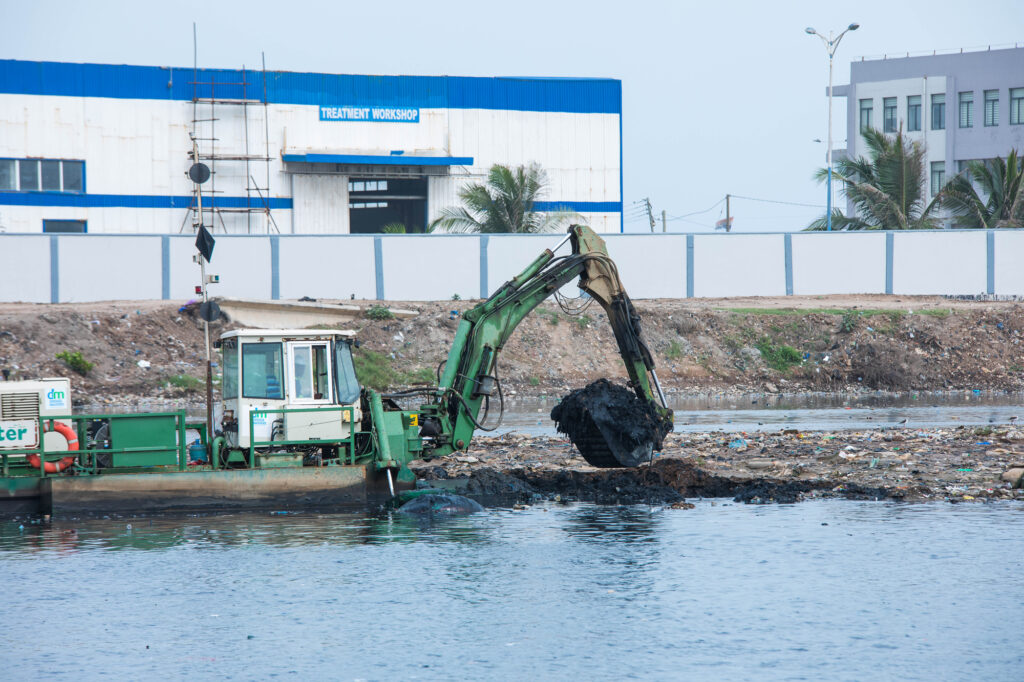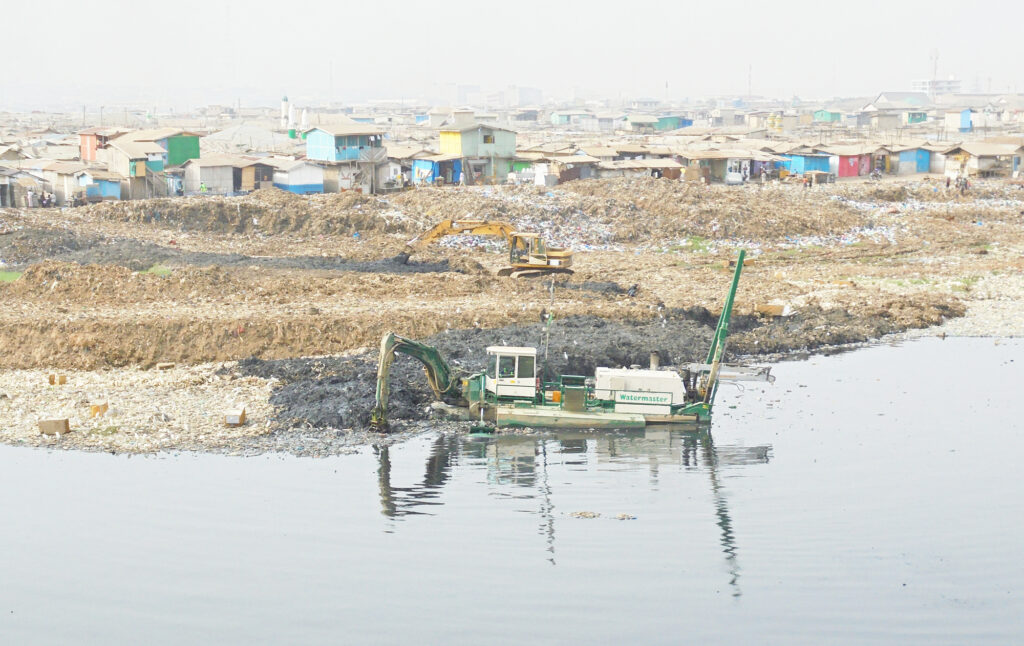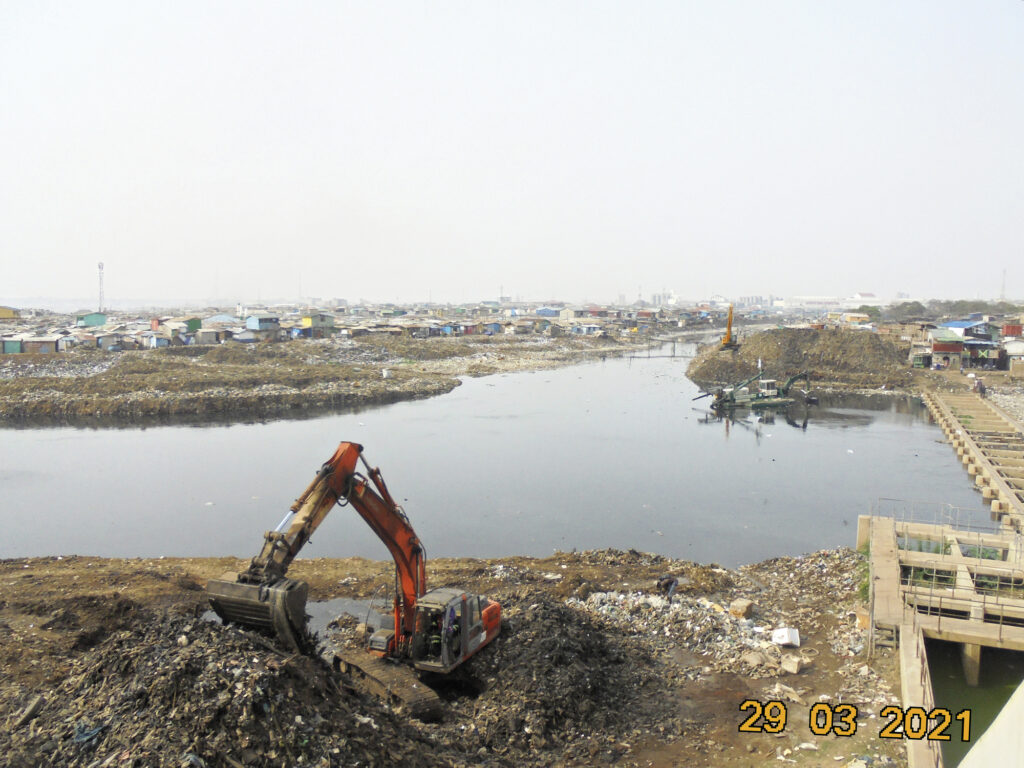Ghana’s capital city Accra is a rapidly growing metropolis on the coast of the Atlantic Ocean. Its economy has vastly developed during recent years, but serious environmental, health and safety challenges have also emerged. For example, the rivers and lagoons of Accra have become filled with waste and silt and are now more prone to dangerous flooding. A local company, Dredge Masters, uses a fleet of amphibious multipurpose Watermaster dredgers to clean and de-silt the important Odaw River as a part of the Ghanaian government’s program to mitigate and prevent perennial floods in the city.
In recent decades, Ghana has become one of the fastest-growing economies in Africa. Ghana’s capital and largest city, Accra, is the bustling administrative and economic center of the country. The population of the Greater Accra Metropolitan Area is over 4 million people.
The rapid urbanization of major cities across Africa, including Accra, has led to a vast increase in their waste generation. Indiscriminate littering is common and leads to the pollution of these urban centers and their water bodies. Inadequate housing and poverty are also some of the causes of Accra’s waste problem. People without proper sanitation facilities or waste management services have found shelter in settlements on the banks of the river channels, which results in more waste discarded directly into the environment. All the accumulated waste from the city eventually piles up in the drainage system and blocks the unobstructed flow of water. This gradually results in another problem: harmful deposits of silt that negatively impact the capacity of the drainage channels.
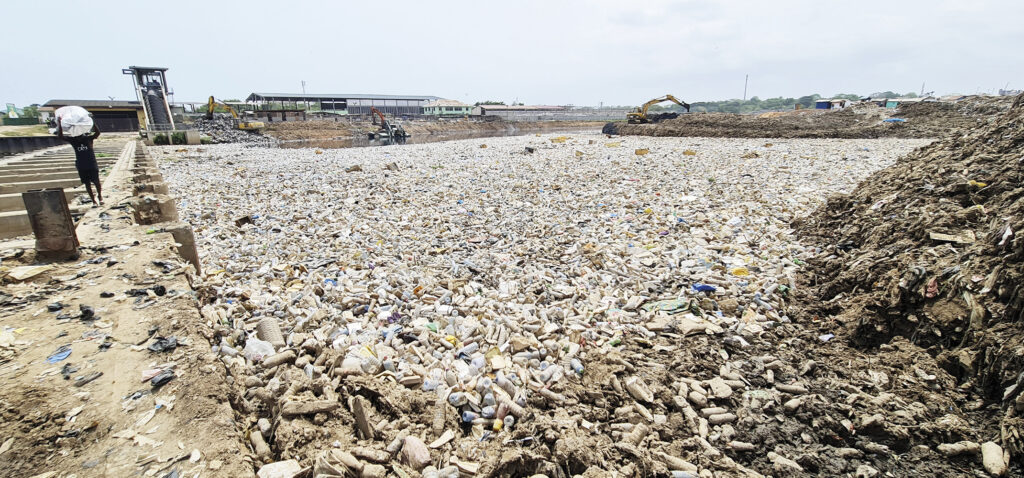
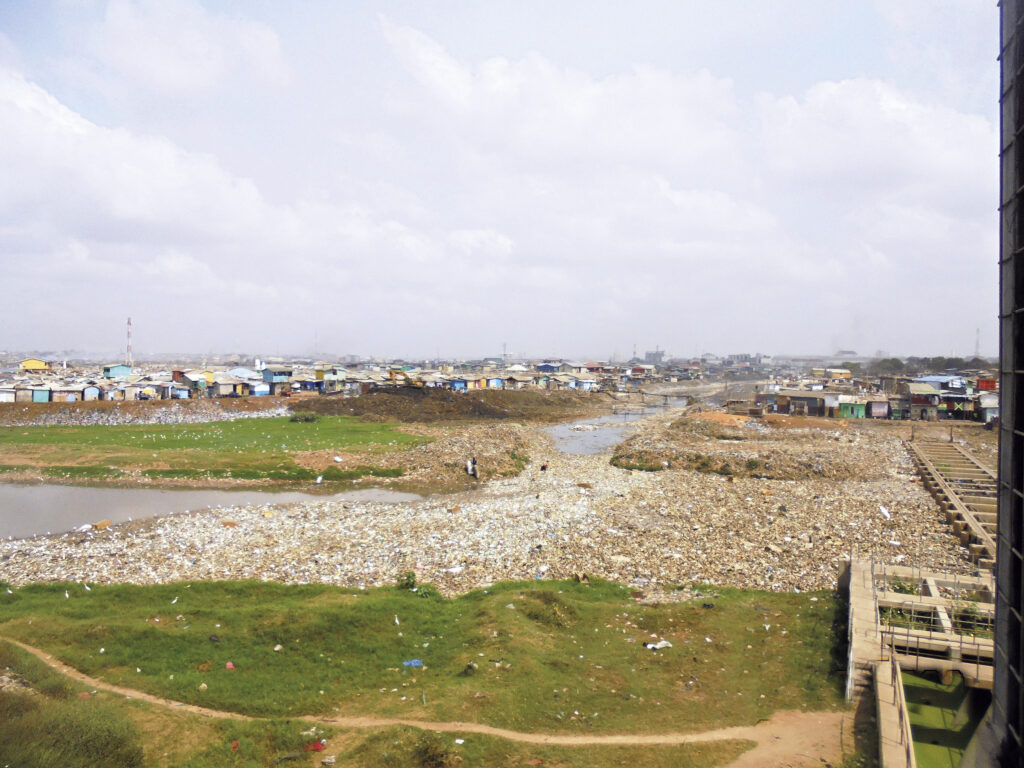
The Odaw River is strategically very important for Accra since it drains a large portion of the city and finally flows into the Atlantic Ocean through the Korle Lagoon. However, the excessive amount of waste and silt restricts its water flow and prevents it from fulfilling its purpose. The Odaw River has become one of the most polluted waters on earth. As a result, Accra has frequently endured dangerous flooding during the months of June to August, when the rainfall is at its highest. The most devastating disaster occurred in June 2015, when the clogged Odaw River could not handle three days of heavy rain, leading to severe flooding in the city. One hundred and twenty-six people died, and local infrastructure and private properties suffered massive damage. Authorities were resolute that this should never happen again.
Accra is the capital of Ghana, located on the shores of the Atlantic Ocean in Western Africa
Watermaster perfect for the job
Dredging has proved to be one of the key elements to solve the problem. After the 2015 disaster, the government of Ghana launched the National Flood Control Programme and authorized Dredge Masters to start the cleaning operations at the Odaw River and Korle Lagoon. Dredge Masters is a Ghanaian company that specializes in dredging and environmental clean-up services across the African continent. For this extensive and challenging project, they deployed a fleet of six mobile and versatile Watermaster dredgers, which are ideal for shallow water work. The multipurpose Watermaster can perform all the different tasks needed in demanding restoration projects. It can clear out trash and vegetation by raking, and can remove excess siltation by suction and backhoe dredging. It can also drive piles to help protect riverbanks from erosion.
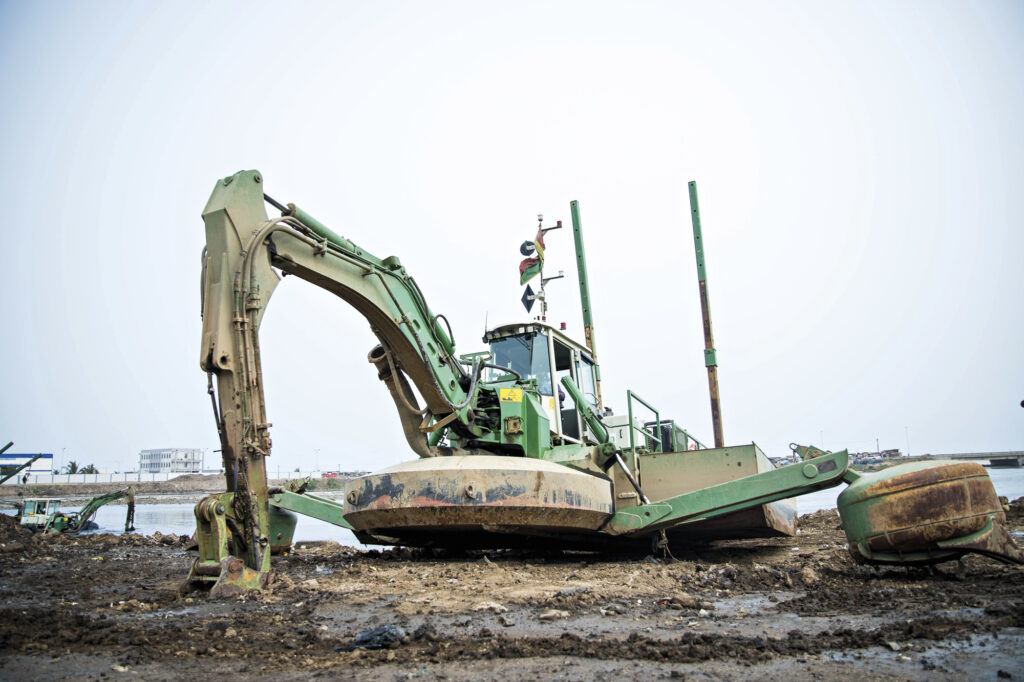
Watermaster is compact-sized and easy to transport on public roads and even in cities. It is a fully amphibious machine that can “walk” in and out of the water without crane assistance and operate in very shallow or even water-free environments. One of Watermaster’s unique advantages in flood control is its independent mobi-lity and anchoring without the laborious assisting equipment of traditional dred-gers. A Watermaster can perform precision dredging according to the natural flow dynamics of the water. It can dredge at the specific points where the effect is the greatest. Conventional dredgers are more tied to predefined geometric areas, and thus do a lot of unnecessary work in areas where the benefits remain smaller and shorter-term. Watermaster can keep the natural flow beds open very effectively.
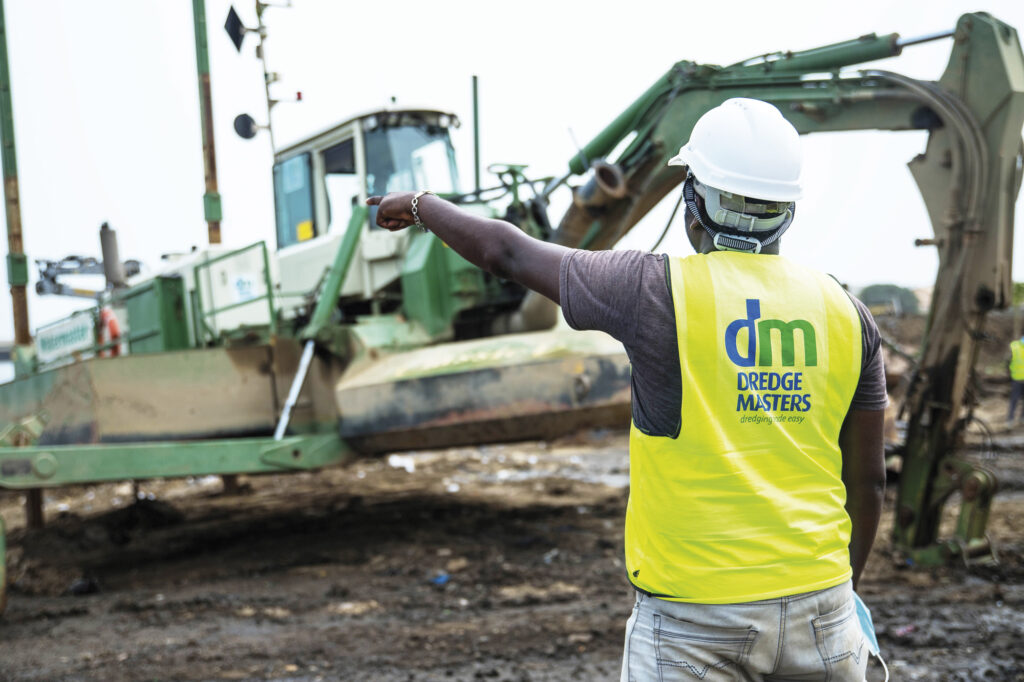
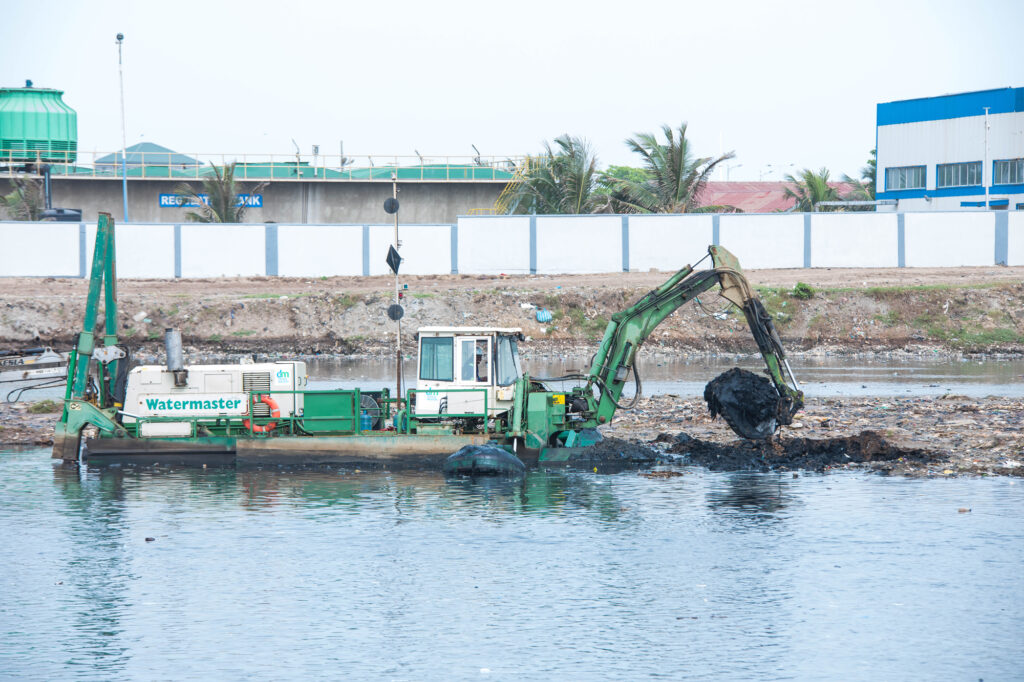
Removing waste and silt
According to Dredge Masters experts, the main reason for the flooding of the drainage system is not the rubbish discarded in the drains but the accumulation of silt. Nevertheless, trash makes the problem even worse. During their two-year contract between 2016 and 2018, the Dredge Masters removed over 1 000 000 cubic meters of silt and rubbish from the Odaw River and Korle Lagoon. Watermasters lifted the materials from the riverbed to the shore and floating barges. The materials were then loaded into trucks and transported for final treatment and deposit. After the restoration work, the drainage system started gradually fill up with trash and silt again. It became clear that these waters need regular maintenance.
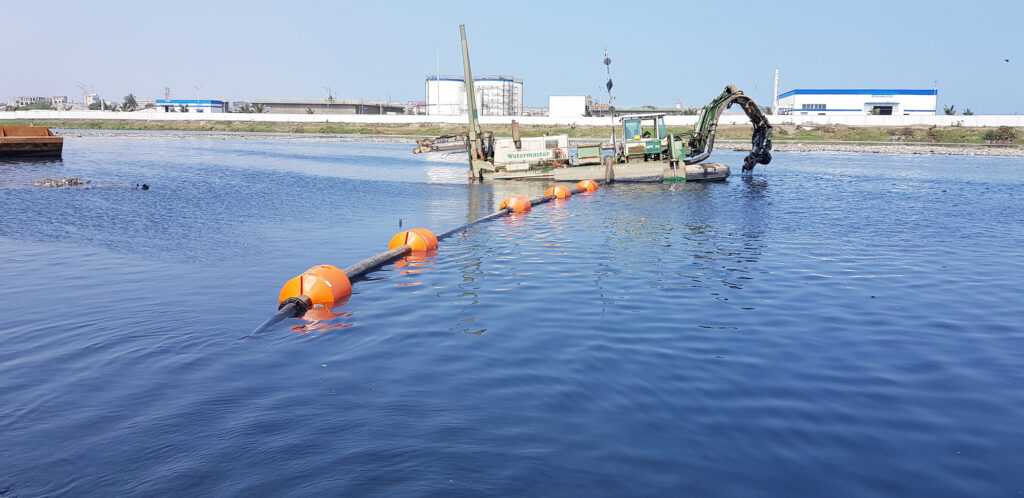
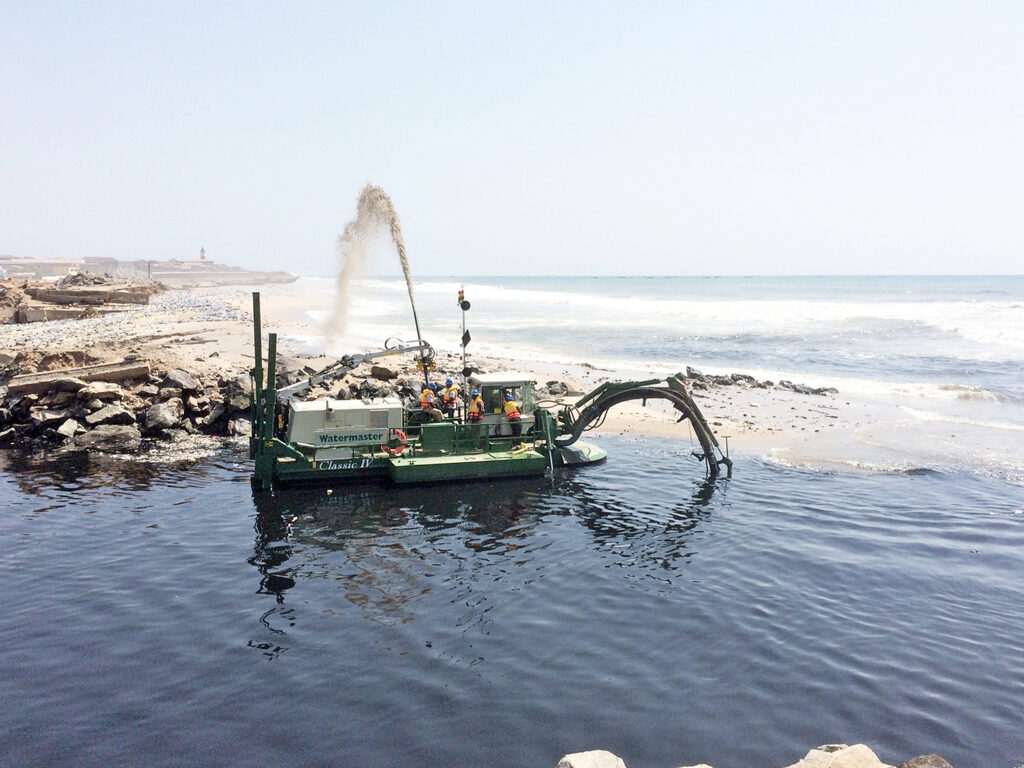
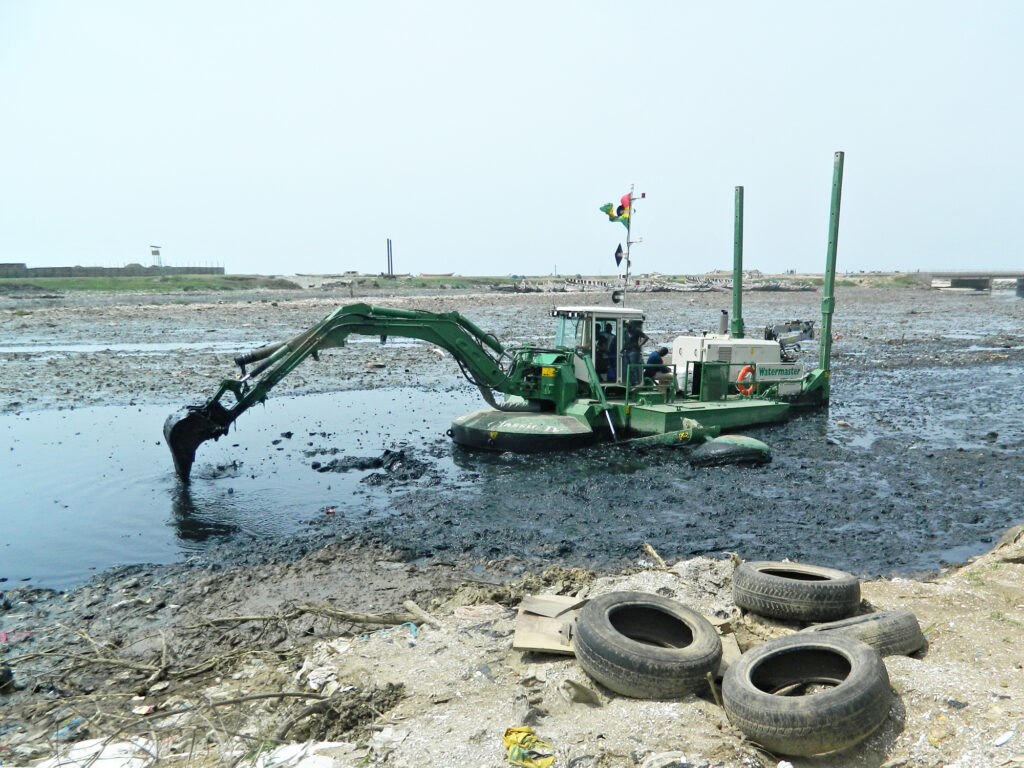
Towards a flood-free Accra
Things are currently looking brighter in Accra. Dredge Masters have just comp-leted another phase of the restoration plan, and the Odaw River is in considerably better condition than in previous years. The waters are now expected to flow smoothly during the rainy season.
A permanent solution to prevent Accra floods for good requires changing people’s attitude towards waste disposal, re-engineering the drainage system, and regular Odaw River and Korle Lagoon de-silting. The World Bank estimates that improving the management of waste and flood risk in Accra would benefit over 2.5 million people in the Odaw River Basin of the Greater Accra Region.
With a fleet of six Watermasters, the Dredge Masters are able to carry out large-scale shallow water restoration projects Multipurpose Watermaster clears the trash by raking and removes excess silt by backhoe and suction dredging. The extremely shallow water is not a problem for the amphibious machine.
Gallery
